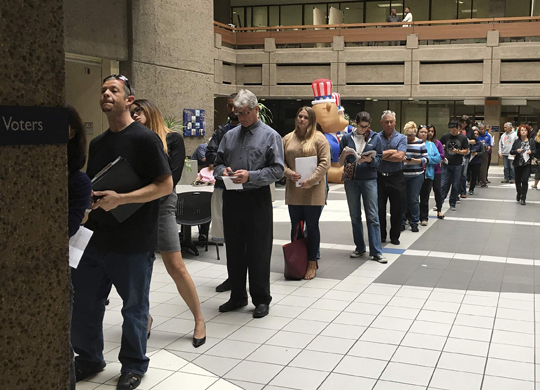California, Nov 9: A gunman with an assault rifle killed a man and critically wounded two women Tuesday in a California neighborhood near two polling sites that were shut down before the attacker was found dead inside a nearby home, authorities said.

One polling place was reopened hours after a gunbattle involving the gunman and Azusa police.
The shooting "had nothing to do with the ballot or voting," Los Angeles County sheriff's Lt. John Corina said. "It just happened to be across the street from the park where the voting was taking place and also an elementary school" that was being used as a polling site.
"Nobody was shooting at those locations," Corina said.
County election officials advised voters to visit other polling places where they could cast provisional ballots.
Police responding to reports of afternoon gunfire exchanged shots with the suspect before taking cover in the park, Azusa police Chief Steve Hunt said. No officers were hurt.
A SWAT team sealed off the area and hours later entered the nearby home, where they found the gunman dead, authorities said.
Investigators didn't know whether the gunman died by police bullets or killed himself, Corina said.
Two women in their mid-50s were wounded and hospitalized in critical condition, Corina said.
The motive of the shooting was unknown and it was unclear whether the attacker knew his victims, Corina said.
The names of the gunman and victims were not immediately released.




Comments
Add new comment